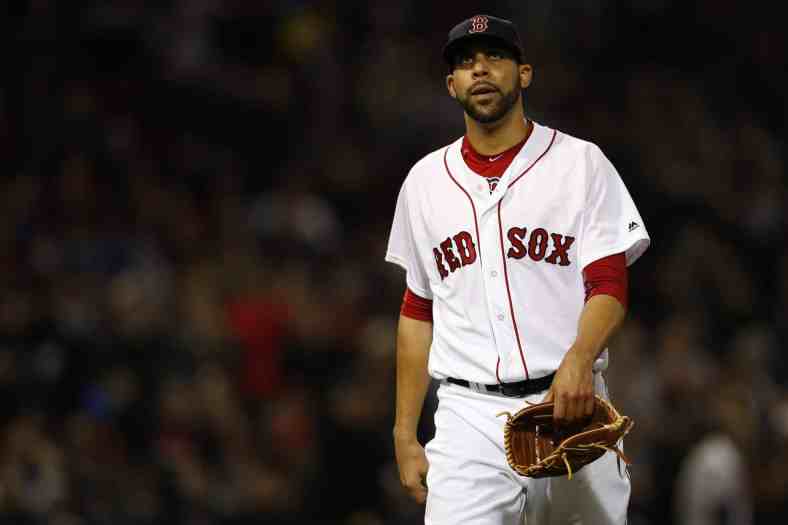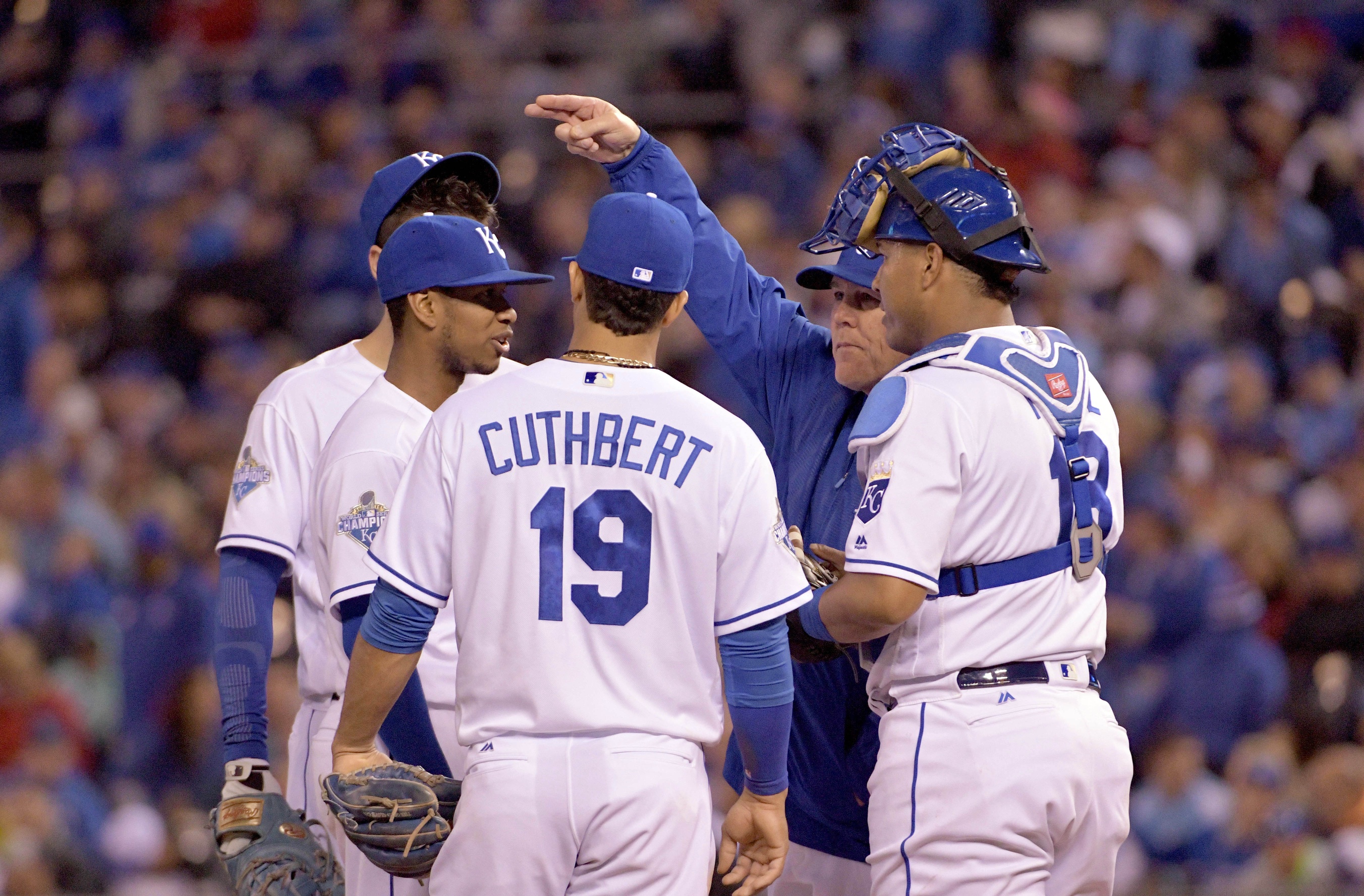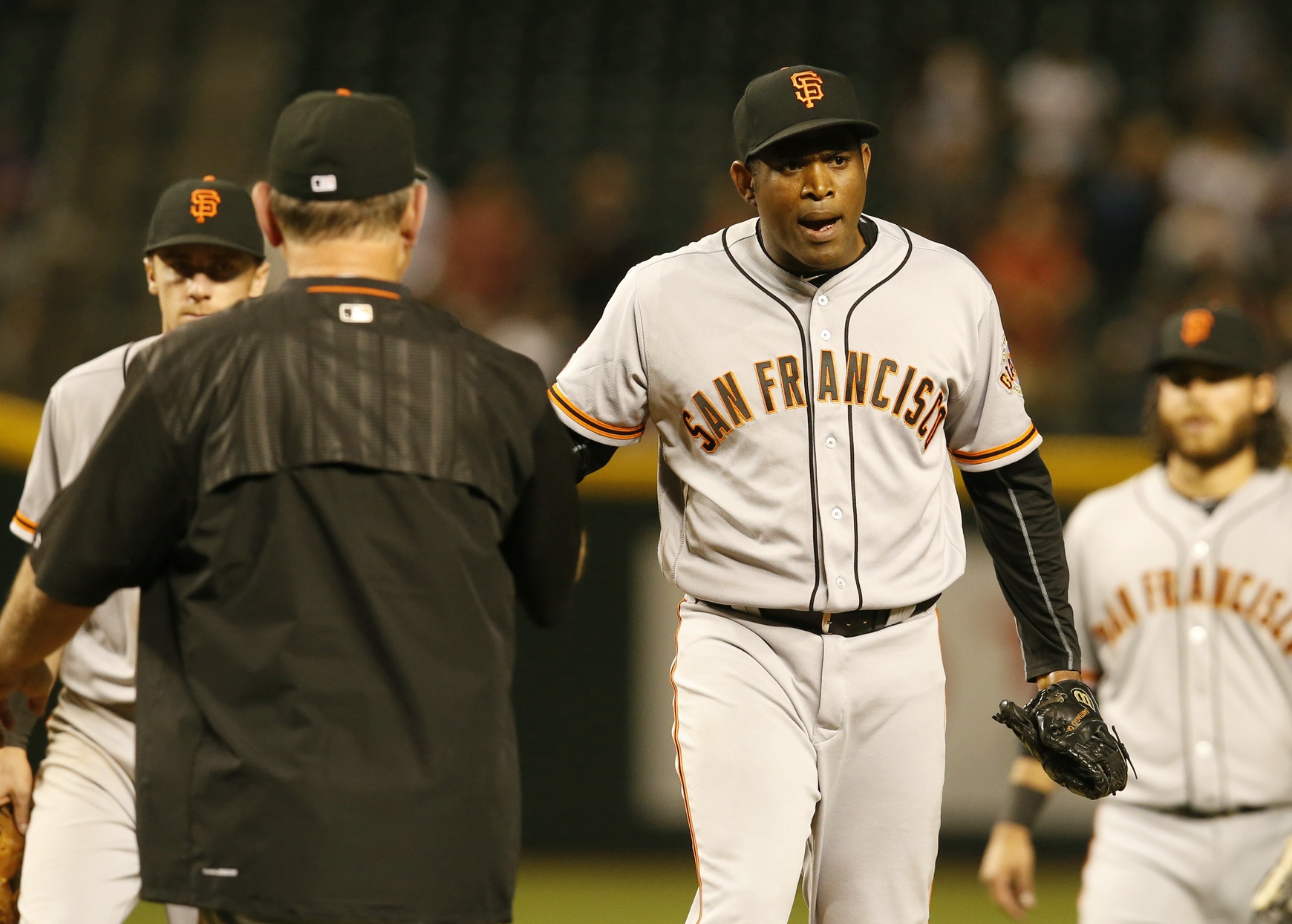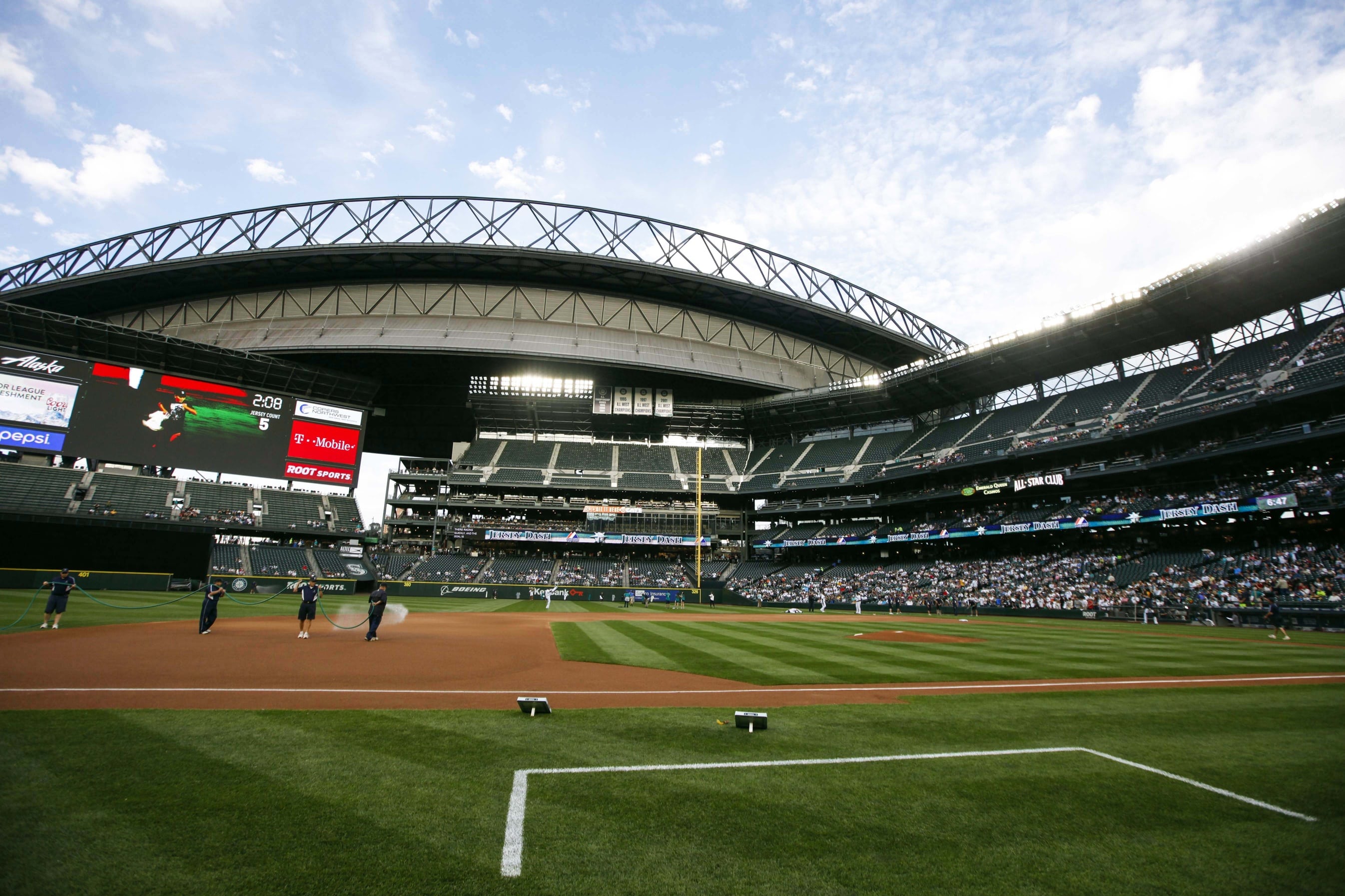
While we still have two-thirds of the MLB season yet to play out, it’s never too early to look at the standings.
If you’re a fan of a team on track to make the playoffs, you should be happy. Still, no team is perfect. And it never hurts to be aware of what your biggest issue might be.
Conversely, if your favorite team is on the outside looking in and you need a source of optimism, knowing what could undo your rival offers some hope that things might turn around.
The MLB standings tell us which teams are leading the Divisional and Wild Card races, but which weaknesses are most likely to jump up and bite them at the wrong moment?
American League division leaders
American League East: Boston Red Sox, starting pitching
The Red Sox may well have baseball’s best offense, and in a close game late, closers don’t get much better than Craig Kimbrel.
The starting rotation, though, has been more problematic.
The #RedSox aren't exactly blowing people away with dominating pitching right now. pic.twitter.com/divrvNEi6c
— Sportsnaut (@Sportsnaut) June 3, 2016
The strikeouts are nice, but as far as winning in the playoffs goes, they don’t necessarily transfer. Teams in the playoffs tend to put the ball in play better than the ones who are golfing in October. So, getting out of a jam by way of a few strikeouts will be much tougher.
The walk rate is what’s really troubling. A case could be made that allowing a lot of hits isn’t terrible. After all, balls in play could theoretically even out over time. The balls that are finding holes now could begin to find gloves in the future. But there’s no way to defend against a walk.
American League Central: Kansas City Royals, starting pitching

As the trade deadline gets closer, we should hear that the Red Sox and Royals are interested in the same guys, as their problems are strikingly similar.
Kansas City is tied with Boston in ERA (4.74) and 25th in WHIP (1.45) for starting pitchers. Like Boston, it is not only bad compared to other contenders, but bad compared to essentially everyone.
Fans can take some relief (no pun intended) in the fact that the Royals rely a lot on their stellar bullpen. Additionally, they haven’t exactly boasted a great starting staff in either of the last two seasons, which ended up with two World Series trips and one victory.
But thanks to injuries and departures, this team is not as deep as the 2014 and 2015 squads. Additionally, no team has played more baseball over the last two years than the Royals. Fatigue is a real concern. If this team is going to a third straight World Series, the starters need to step it up and give the relievers more time to relax and save their arms for October.
American League West: Texas Rangers, bullpen
We deviate from our other division leaders in a rather large way. While the Rangers’ starting rotation has been fine, the bullpen has been abysmal. Texas relievers have a 5.21 ERA, placing them ahead of only the Cincinnati Reds. That’s not exactly good company to keep this season.
Teams in playoff races need to hold leads. Boasting one of the leagues worst bullpens, the Rangers can’t possibly have much confidence in their ability to do that.
The good news is that relievers tend to be made available at the trade deadlines (both non-waiver and after). The bad news is that the guys who are generally the most available are specialists who are generally good for a couple of outs per game. The problem in the Texas bullpen is a little too big to be fixed by acquiring one or two of those guys.
National League division leaders
National League East: Washington Nationals, right-handed hitting
While the Nationals have some good hitters — namely Bryce Harper — their offense isn’t great. They’re 18th in batting average (.244), 16th in OBP (.319), and 11th in slugging (.415). That’s not bad, but it certainly offers room to improve.
 Adding a quality right-handed hitter or two would be a good place to start. Washington is 22nd in right-handed batting average (.236) and 23rd in both OBP (.298) and slugging (.393).
Adding a quality right-handed hitter or two would be a good place to start. Washington is 22nd in right-handed batting average (.236) and 23rd in both OBP (.298) and slugging (.393).
Whether we’re talking about high average guys, power bats, or superstar like Ryan Braun, who would bring both, the Nats need to stock up on right-handed bats. If they continue down this road, good teams will be able to throw left-handed specialists at guys like Harper and Daniel Murphy while taking their chances against the righties. The lineup needs to be adequately staggered.
National League Central: Chicago Cubs, possible malaise
The Cubs aren’t a team with many flaws. They’re five games better than any team in baseball, 8.5 clear of any division rival and are on pace to win 115 games. Even better, some of their power bats have under-performed. Chicago is only 10th in slugging and tied for 12th in homers.
Really, that’s the problem. This team is going to the playoffs. Whether anyone on the team will publicly look ahead or not, they all know it, and we all know it.
Aside from potential injuries, the Cubs’ biggest concern right now is that with this kind of a lead, the season can get boring. When that happens, teams risk falling into bad habits that could bite them in the behind when the playoffs roll around.
Remember, the 116-win 2001 Seattle Mariners barely survived the Division Series and were then manhandled in the American League Championship Series. Slacking off is a natural tendency when you’re that far ahead. If Chicago is going to break their 108-year World Series drought, this can’t happen.
National League West: San Francisco Giants, late-game relief

Hunter Pence’s injury leaves something of a void in the lineup. The starting rotation is great at the top, but the fourth and fifth spots are shaky. Still, this boils down to protecting a late-game lead.
A very possible hypothetical puts this into a good perspective.
Imagine being a Giants fan. You’re watching the deciding game of a playoff series between the Giants and Cubs at Wrigley Field. San Francisco has a one-run lead in the ninth inning, the wind is blowing out, and the Chicago faithful are going crazy. Coming up to bat in the ninth in some order are Ben Zobrist, Anthony Rizzo, and Kris Bryant. The camera pans to show Santiago Casilla trotting in from the Giants’ bullpen.
Are you really feeling good about your team’s chances?
American League Wild Card teams
No. 1 American League Wild Card: Seattle Mariners, bad home-field record
With the possible exception of the Colorado Rockies, no team has a more natural home field advantage than what Seattle enjoys. No MLB team is located further geographically from their nearest opponent. That does make for some long road trips but it also means that teams have to travel a good distance to take them on. In years where the Mariners are good, they should defend their home field better than just about anyone.
This is one of those years, as statistically, Seattle is one of baseball’s best teams. It has very few flaws. Unfortunately, the Mariners have not defended their home field well. Seattle is just 12-14 at Safeco Field — which is problematic for a couple reasons.
One, good teams should play at about .600 ball at home. Under .500 is just way off of the mark for a potential playoff team.

Two, the Mariners are on pace to win 57 road games. It’s a very good clip, but only two teams since 2005 have won 50 games away from home in a season. The last team to win more than 50 was the Chicago White Sox, who went 52-29 on the road in 2005. Even the aforementioned 116-win Mariners were 59-22, and as good as they are, this Seattle team is not anywhere near as potent as that 2001 squad was. The current road pace is good, but it’s not sustainable.
If they start to win more home games, losing a few extra away from home won’t be such a huge problem. If they can’t gain any home magic and lose as often as they win (or worse) in the Emerald City, it’s a different story.
No. 2 American League Wild Card: Baltimore Orioles, starting pitching
This seems to be a common theme with so many of the American League’s best teams, and Baltimore is no different. The Orioles starters are tied for 24th in quality starts (21), 23rd in ERA (4.78) and 18th in WHIP (1.38).
The O’s and Red Sox have a similar problem in that they both walk too many hitters. But while we’re not sure how well it will transfer against good teams, it’s worth repeating that Boston’s starters do register high strikeout totals. Baltimore’s do not. With 7.3 strikeouts per nine, they rank 21st in baseball.
 This kind of starting pitching will not survive through the dog days of summer in July in August. Eventually, the outings will get shorter and shorter, causing the strong bullpen to come in earlier in games. That may sound good on the surface, and it may even play out that way in the short term. But when the relievers are forced to pitch more innings, they risk fatigue. When pitchers fatigued, they’re not as good.
This kind of starting pitching will not survive through the dog days of summer in July in August. Eventually, the outings will get shorter and shorter, causing the strong bullpen to come in earlier in games. That may sound good on the surface, and it may even play out that way in the short term. But when the relievers are forced to pitch more innings, they risk fatigue. When pitchers fatigued, they’re not as good.
Thereby, this is problem that needs to be remedied, and fast.
National League Wild Card teams
No. 1 National League Wild Card: New York Mets, too dependent on home runs
The Mets are good at putting the ball over the fence, as they’re tied for third in baseball in home runs. But what will happen to the Mets when they’re facing the best pitchers on the best teams and the homers aren’t so easy to come by? How well can New York manufacture runs?
The #Mets could use some more pop in their lineup. pic.twitter.com/KXk37PDhN7
— Sportsnaut (@Sportsnaut) June 3, 2016
That’s a terrible slugging percentage for a team that’s so prolific in home runs. Those two stats should more or less go hand in hand.
There’s only one way for this Mets’ season to be better than last — they need to win the World Series. That will not come remotely close to happening if New York continues to struggle to produce runs that aren’t generated by the longball.
No. 2 National League Wild Card: Pittsburgh Pirates, bad pitching
Unlike some of the poor pitching teams in the American League, we can’t look at the Pirates’ starters or bullpen and single one of the two groups out as a definitive weakness. The problem is that both the starters and bullpen have been mediocre to terrible.
The Pittsburgh starters are 12th in ERA (4.08), tied for 21st in WHIP (1.40) and 22nd in strikeouts per nine innings (7.3). Pirates relievers are 16th in bullpen ERA (3.86), tied for 20th in WHIP (1.35) and last in strikeouts per nine (7.1).
The Bucs will not make the playoffs unless this changes in a big way. A team with a bad starting rotation or bad bullpen can at least theoretically improve by way of a couple of trades. A team with a bad starting rotation and a bad bullpen isn’t so lucky. In reality, the Pirates would probably need to make four or more deals, and they’d all have to pay immediate dividends.
In this case, the standings don’t lie. Of all the teams currently in playoff position, Pittsburgh is the most vulnerable.